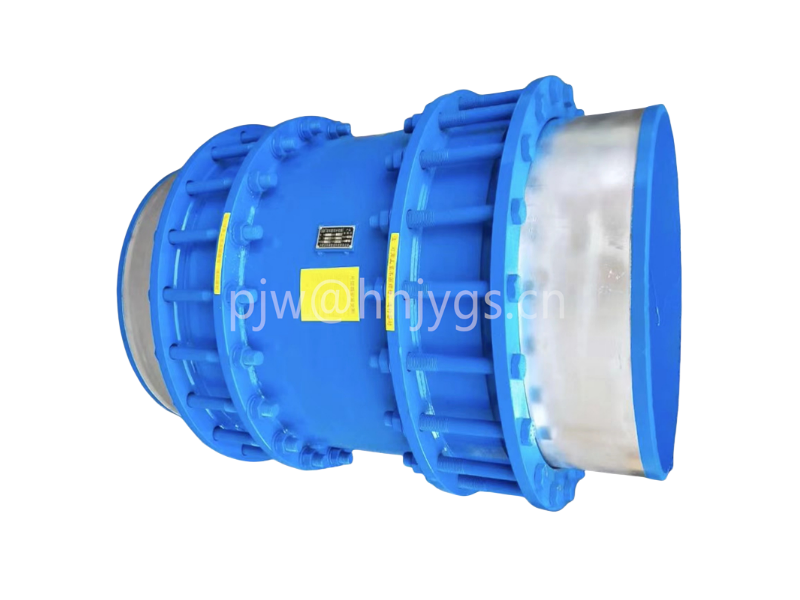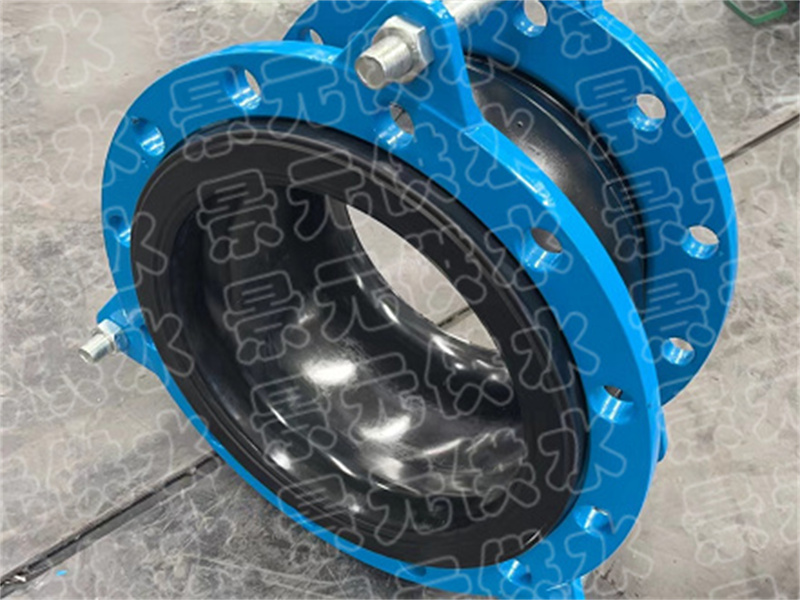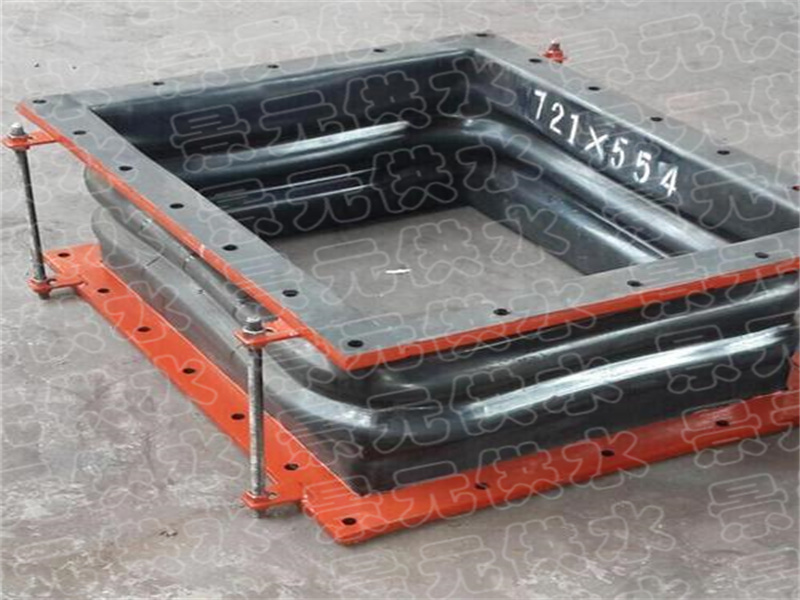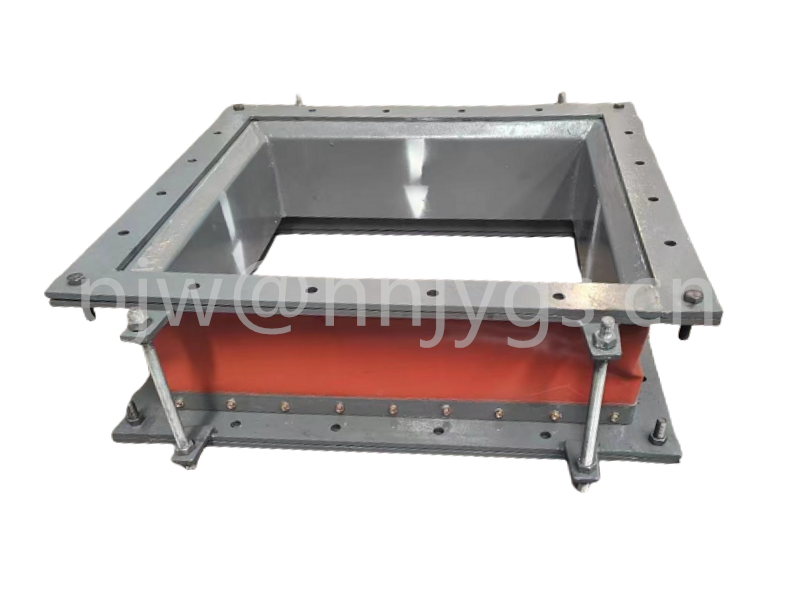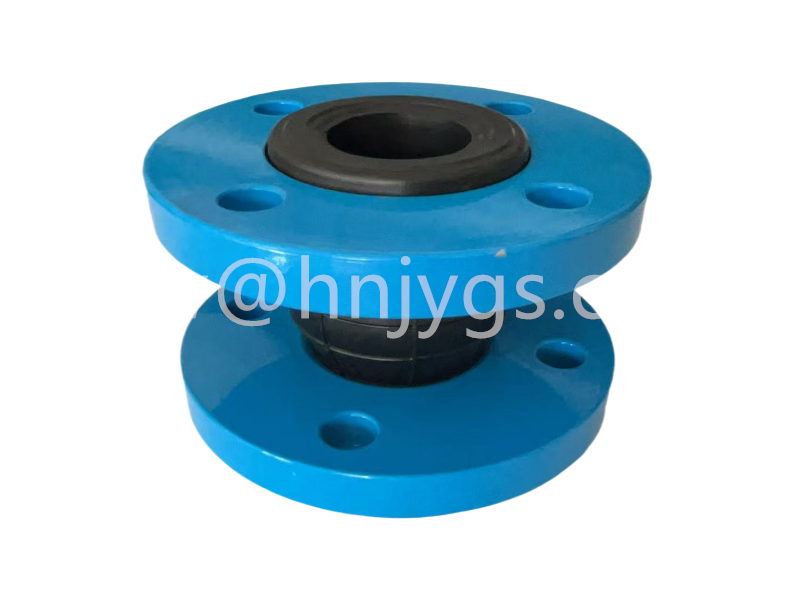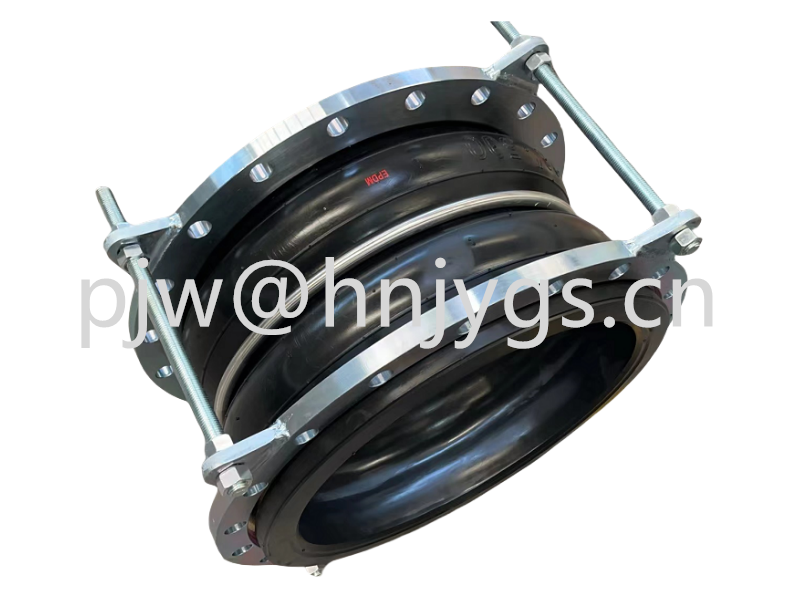Rectangular, round, fabric pipe expansion joint, Material: silicone rubber laminated glass cloth, fluoroelastomer coated glass cloth,
PTFE laminated glass cloth, EPDM coated glass cloth, butadiene rubber coated glass cloth, PTFE film and other single layer or
Multi-layer composite materials, ceramic fiber fireproof cloth, aluminum silicate cotton, stainless steel wire fiber cloth, glass fiber cloth, etc.
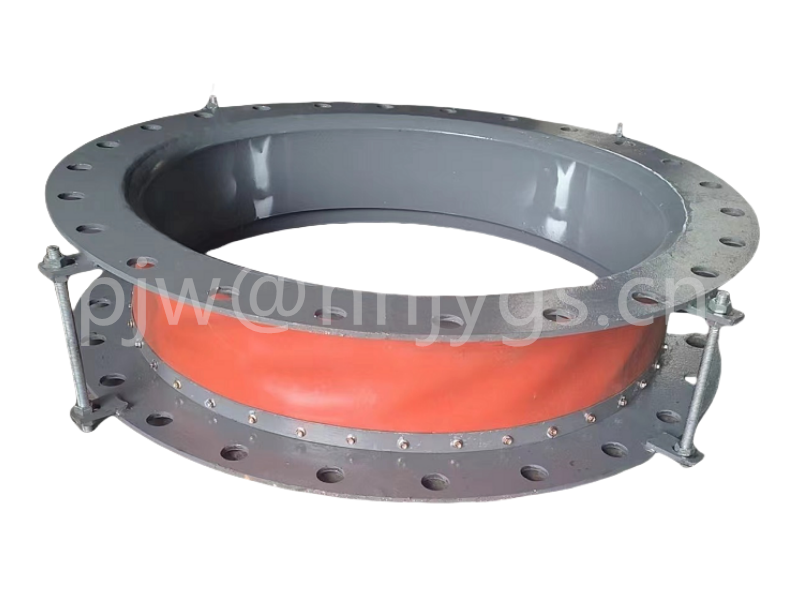
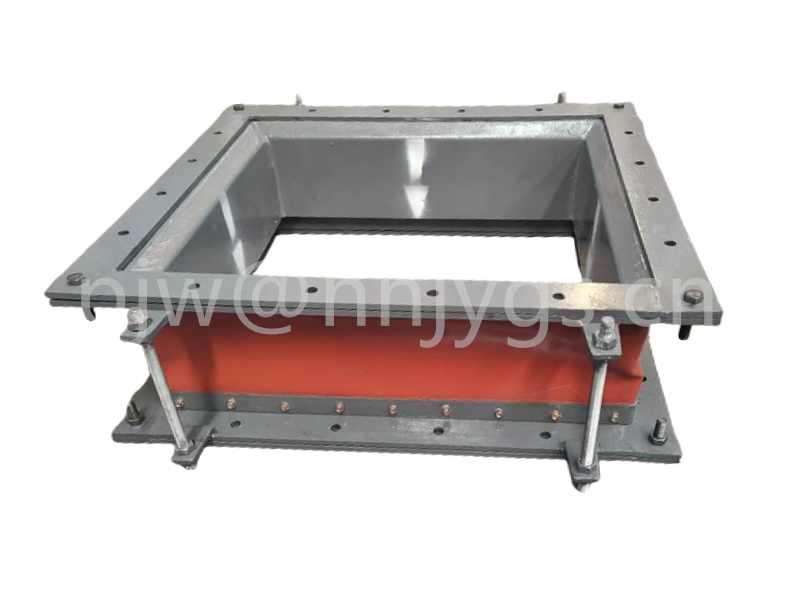
Performance characteristics of non-metallic compensator (non-metallic expansion joint):
The non-metallic compensator is mainly composed of flexible compensators (non-metallic materials),
connecting parts at both ends (flanges or end pipes), adjusting parts (threaded tie rods) and thermal insulation materials.
It is mainly used to compensate for the displacement caused by temperature changes, mechanical vibration and foundation
sinking of the pipeline system for transporting dust, gas, flue gas, coal gas and other gases.
• Compensate for Thermal Expansion: Non-metallic compensators (non-metallic expansion joints) can provide large
multi-dimensional directional compensation in a smaller size range.
• Compensate for installation errors: Since systematic errors are inevitable in pipeline connections, non-metallic
compensators (non-metallic expansion joints) can better eliminate installation errors.
• Noise and vibration isolation: Fiber fabrics and insulation cotton have the functions of sound absorption and vibration isolation,
which can effectively reduce the noise and vibration of boilers, fans and other systems.
• No thrust reverse: Since the main material is a fibrous fabric, it is not capable of transmission. The design can be
simplified with non-metallic expansion joints.
• Good sealing performance: under the action of various media, it has good sealing performance. Easy to install and maintain.
Rectangular Air Duct Fiber Fabric Compensator Installation Instructions:
1. The flange bolts should be pressurized and tightened gradually and evenly, and the tightness of all screws should be as
consistent as possible. In the case of harsh use conditions, a weak spring coil can be added in addition to the flattening gasket to
prevent the nut from loosening.
2. The corresponding rubber asbestos gasket should be selected between the compensator and the matching flat welding
flange according to the working temperature.
3. During the trial, the compensator limit screw should be appropriately adjusted to facilitate the elongation or compression of the product.
4. When the welded pipe is connected, the limiting screw should be loosened appropriately to prevent the compensator limiting
plate from bending or the product from deforming.
5. During welding operations, cover the rubber (fabric) surface to prevent welding slag from damaging the product.

